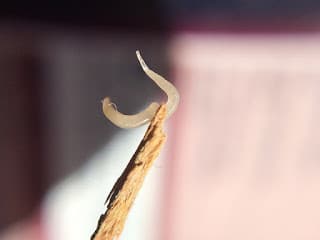According to medical research, there are types of worms diseases that can be found in the body. This worms varies by sizes, Symptoms, treatment, countries to countries and mode of contracting them.
Types of worms?
- Flukes (trematodes)
- Tapeworms
- Strongyloides stercoralis
- Pin-worm, Thread-worm (enterobiusvermicularies)
- Hook-worm (Ankylostoma duodenale and necatoramericanus)
- Trichina worms (Trichinella spiralis)
- Round-worm (ascarislumbricoides)
- Guinea worm, serpent-worm,dragon-worm
Where are these types of worms found or located in the body system?
Flukes worms
This worm has varieties but similar characteristics.They all have the same size in length and causing the same general complaints.
- Tapeworms
This types of worms are found all over the world.
- Strongyloides stercoralis
This worm is found throughout the world but it can be found mainly in Brazil, the Far East, and Africa.
Pin-worm, Thread-worm (enterobiusvermicularies)
These worms are found in all part of the world. The male has different size and female have is own size too. It usually affects children and it is found in the intestine, appendix, and large bowel.

Hook-worm (Ankylostoma duodenale and necatoramericanus)
The hookworm is found in all tropical and subtropical countries. The female is larger than the male.
Trichina worms (Trichinella spiralis)
As the name implies they are found in China, Europe, Africa, Syria and united states of America. This is the smallest of the round-worms. The male is smaller in diameter than female. It is found in the small intestine and bloodstream
Round-worm (ascarislumbricoides)
This is found all over the world. It so found in the temperate zone as well as in the tropical zone. The roundworm is the largest of all worms that infect the human body. The male measure about 15 to 25 cm, and the female about 25 to 40 cm in length. It is round and the body is very firm. It is found in the small intestine and goes down through the bloodstream and to the liver. Then they make their way down to the bronchi to the trachea and up to the throat.
Guinea worm, serpent-worm,dragon-worm
They are found in India, Burma, Arabia, Persia, Africa; west indies and South America.
What are Treatment and Symptoms of these types of worms Diseases?
Disclaimer: the drug mentioned in this article are for informational purposes only and the drugs may have been outdated or not in use anymore. If at all you want a drug for worms, consult your doctor or pharmacist.
Flukes symptoms and treatment
Symptoms: Blood in the urine may occur (Haematuria) this is usually painless, also coughing of blood (hemoptysis), diarrhea, enlarged liver, and spleen.
Tapeworms symptoms and treatment
Treatment: Using Quinacrine is very effective. How to use this is that two tablets are given at ten minutes interval until ten are given. A little sodium bicarbonate can also be given to subdue any tendency to vomit.
Two hours later you should also give 30 grams of sodium sulfate. The patient we purge and the worm we pass out with the stool. If the patient did not purge soap-suds enema should be given. Pls, note until the worm passes out with the stool the patient will not recover quickly.
Strongyloides stercoralis symptoms and treatment
Symptoms: When these types of worms enter the skin, the organism causes itching. It also causes lungs haemorrhage. Diarrhoea may occur.
Pin-worm, Thread-worm (enterobiusvermicularies) symptoms and treatment
Symptoms: itching is the main symptoms of these types of worms.
Hook-worm (Ankylostoma duodenale and necatoramericanus) treatment and symptoms
Symptoms: it causes itching too. It is commonly called ground itch. Some disappear without treatment within the very few days .
Trichina worms (Trichinella spiralis) symptoms and treatment
Round-worm (ascaris lumbricoides) treatment and symptoms
Symptoms: When these types of worms are in the lungs, particular if they are in great numbers, they may produce symptoms like pneumonia.
Guinea worm, serpent-worm,dragon-worm symptoms and treatment
Symptoms:
A toxic effect is produced from the fluids given off by the female at the time of discharges the embryos. Usually, there is a blister formed and secondary infections result from her penetrating the skin.
SOURCES
- Diagnosis of parasitic diseases. (2018).
cdc.gov/parasites/references_resources/diagnosis.html


